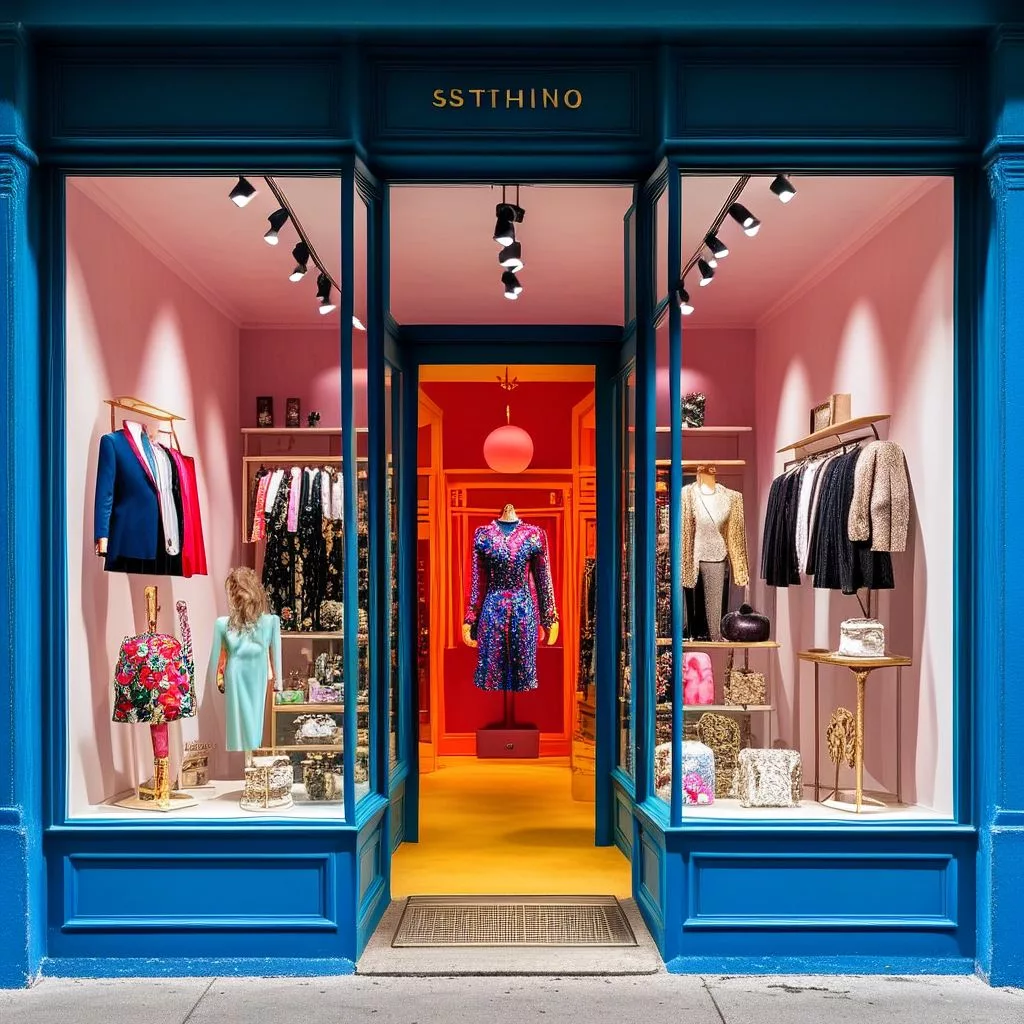Pepkor is shaking up the retail scene in southern Africa by buying popular brands like Legit, Swagga, Style, and Boardmans. With this exciting move, Pepkor adds 462 new stores and aims to become a major player in adult fashion and homeware. This acquisition not only boosts their brand lineup but also promises fresh and fun shopping experiences for customers. Pepkor’s leaders believe this step will help them grow even more and provide great, affordable products for everyone. It’s a bold step into a bright future for Pepkor and its shoppers!
What are the implications of Pepkor’s acquisition of Legit, Swagga, Style, and Boardmans?
Pepkor’s acquisition of Legit, Swagga, Style, and Boardmans will enhance its market presence, diversify its brand portfolio, and strengthen its position in the adult fashion and homeware sectors. This strategic move adds 462 stores and aligns with Pepkor’s growth objectives, promising innovative retail experiences for consumers.
Expanding the Retail Footprint
Pepkor, a retail powerhouse, is making waves with a noteworthy acquisition that promises to redefine the fashion and homeware landscape in southern Africa. The company has struck a deal to acquire popular brands Legit, Swagga, Style, and Boardmans from Retailability. This significant move is set to enhance Pepkor’s market presence and diversify its brand portfolio, showcasing a calculated growth strategy.
Retailability, known for its extensive network of stores across southern Africa, will continue to manage brands like Edgars, Edgars Beauty, Red Square, Kelso, and Keedo, as these are not part of the acquisition. This strategic deal enables Pepkor to absorb 462 additional stores, extending its reach into South Africa, Botswana, Lesotho, Namibia, and Eswatini. According to Moneyweb, this expansion underscores Pepkor’s commitment to strengthening its retail empire.
Historically, Pepkor has focused primarily on budget-friendly clothing, with a special emphasis on kids’ and school wear. However, the company now sees a robust growth opportunity within the adult fashion sector, particularly in womenswear. Legit, known for its appeal to young, fashion-forward consumers, fits seamlessly into this vision. This acquisition is anticipated to bolster Pepkor’s strategy and amplify its presence in the adult fashion market.
A Strategic Expansion into Adult Fashion
The acquisition comes on the heels of Pepkor’s recent launch of Ayana, a new womenswear brand that debuted in 32 stores. Furthermore, Pepkor’s acquisition of Choice Clothing signals the company’s intent to solidify its position in the adult apparel market even further. By integrating these businesses, Pepkor aims to set the stage for substantial growth, with potential significant impacts on the sector.
Once the deal is finalized, the newly acquired brands will become part of Pepkor Speciality, a division already housing an impressive portfolio, including Tekkie Town, Shoe City, Dunns, Refinery, CODE, SPCC, and Ayana. With the addition of Legit, Swagga, Style, and Boardmans, Pepkor Speciality’s store count will rise to 941 across various countries. This expansion not only boosts Pepkor’s market position but also enriches its brand portfolio, offering a broader range of products to consumers.
The inclusion of Swagga and Style will enhance Pepkor’s adult fashion offerings, while Boardmans will strengthen its homeware division. Integrating these established brands allows Pepkor to leverage its extensive supply chain, robust sourcing capabilities, and financial services. This strategic alignment is expected to provide a competitive edge in terms of pricing and operational efficiency, solidifying Pepkor’s market dominance.
Perspectives from Leadership
Tyrone Vieira, CEO of Pepkor Emerging Businesses, emphasized the acquisition’s importance, stating, “These brands are a great addition to Pepkor Speciality, and we’re eager to bring them into the fold. This expansion will allow us to strengthen our position in the adult fashion market.” Vieira’s statement reflects the company’s broader growth strategy, which includes retail, financial services, omnichannel expansion, and improved operational efficiency.
Chief Operating Officer Sean Cardinal described the acquisition as a pivotal moment in Pepkor’s growth trajectory. His optimism mirrors the company’s strategic vision to evolve and adapt in an ever-changing retail environment. The deal is not just about increasing store counts; it’s about integrating complementary brands that align with Pepkor’s mission to provide affordable fashion and lifestyle products to a wide consumer base.
Norman Drieselmann, CEO of Retailability, expressed enthusiasm about the agreement, highlighting the mutual benefits for both companies. He noted that the deal would enable the Legit, Boardmans, Style, and Swagga brands to thrive under Pepkor’s management. Drieselmann remarked, “This is a fantastic outcome for everyone involved and will also allow Retailability to focus more on expanding Edgars.” His comments emphasize the strategic nature of the deal, allowing both companies to concentrate on their core strengths and growth areas.
Financial and Strategic Implications
According to Business Tech, the transaction will be settled in cash, with the purchase price representing less than 2% of Pepkor’s R96 billion market capitalization. While regulatory approvals and standard conditions remain, the company is optimistic about completing the deal promptly. This acquisition reinforces Pepkor’s status as a formidable player in the retail sector, strategically expanding its reach and reinforcing its commitment to providing affordable fashion and lifestyle products.
Pepkor’s decision to acquire these brands is more than just a business maneuver; it echoes broader historical and artistic movements where integration and expansion spurred innovation and growth. Much like the Renaissance, which saw the amalgamation of art, science, and culture leading to unprecedented advancements, Pepkor’s integration of these brands promises to usher in a new era of retail innovation and consumer engagement.
The company’s strategic focus on adult fashion mirrors the Art Nouveau movement, which prioritized aesthetic unity and harmony. By seamlessly integrating Legit, Swagga, Style, and Boardmans, Pepkor aims to create a unified retail experience catering to diverse consumer needs. This holistic approach is expected to resonate with modern consumers who seek variety and consistency in their shopping experiences.
Additionally, the acquisition aligns with the principles of the Bauhaus movement, which emphasized functionality and simplicity without compromising design quality. Pepkor’s emphasis on operational efficiency, competitive pricing, and a streamlined supply chain reflects these ideals. The company’s ability to balance these elements will likely be a key driver of its success in the increasingly competitive retail landscape.
In conclusion, Pepkor’s acquisition of Legit, Swagga, Style, and Boardmans marks a significant milestone in its growth journey. By strategically integrating these brands and focusing on adult fashion and homeware, the company is poised to enhance its market presence and consumer appeal. This bold move not only strengthens Pepkor’s portfolio but also sets the stage for innovative growth and sustained success in the dynamic retail sector.
This acquisition is a testament to Pepkor’s forward-thinking strategy and commitment to providing affordable, high-quality fashion and lifestyle products. As the company continues to evolve and expand, it remains well-positioned to meet the diverse needs of its consumers, ensuring a bright future in the retail space.
“`markdown
Frequently Asked Questions (FAQ)
What brands has Pepkor acquired in its recent acquisition?
Pepkor has recently acquired popular brands including Legit, Swagga, Style, and Boardmans. This acquisition adds 462 new stores to Pepkor’s existing operations.
How does this acquisition impact Pepkor’s market presence?
The acquisition is designed to enhance Pepkor’s market presence in the southern African retail sector by diversifying its brand portfolio and solidifying its position in the adult fashion and homeware markets.
What is Pepkor’s strategy moving forward with the acquired brands?
Pepkor aims to integrate these brands into Pepkor Speciality, which already includes several well-known names. The company plans to leverage its extensive supply chain and operational efficiency to offer competitive pricing and innovative retail experiences.
How many stores will Pepkor have after this acquisition?
After the acquisition of Legit, Swagga, Style, and Boardmans, Pepkor will have a total of 941 stores across various countries, strengthening its footprint in South Africa, Botswana, Lesotho, Namibia, and Eswatini.
What is the financial implication of the acquisition for Pepkor?
The acquisition will be settled in cash, representing less than 2% of Pepkor’s R96 billion market capitalization. The company remains optimistic about completing the deal promptly, pending regulatory approvals.
How does this acquisition reflect Pepkor’s overall business strategy?
This acquisition aligns with Pepkor’s broader growth strategy focused on retail and adult fashion. It emphasizes the company’s commitment to providing affordable, high-quality products while enhancing operational efficiency and expanding its consumer base. The deal is seen as a pivotal moment in Pepkor’s growth trajectory and aligns with its mission to innovate within the retail sector.
“`








